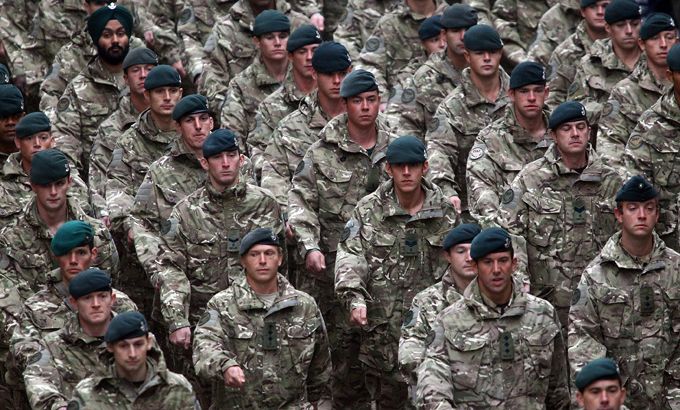
Afghanistan: Success or failure?
William Patey, the outgoing British ambassador to Afghanistan, shares his views on the future stability of the country.
It has been 11 years now that ISAF, NATO’s international security assistance force, have been in Afghanistan, occupying Afghanistan as part of the global ‘War on Terror’ in 2001. There has been much debate in the past years as to what the current purpose of the mission is. With the withdrawal of troops scheduled for 2014, many argue that Afghanistan will still be a failed state with a potential of increased chaos, once the Afghan security forces are completely in charge themselves. Are the Taliban just as much of a threat as they were in 2001?
Joining Sir David to discuss what is needed for continued stability in Afghanistan is Sir William Patey, the outgoing British ambassador to Afghanistan. Now retiring, he gives a candid account of what he really thinks of current UK foreign policy towards Afghanistan, along with his predictions for the future stability of the country and an assessment of Hamid Karzai’s presidency.
Patey says: “If we don’t continue to provide support for training and the funding of the Afghan security forces for a number of years beyond 2014 then we are asking for failure…. The Taliban used to gain support because there was no government…the Taliban were the only alternative if people wanted justice. Over the last ten years that has changed…. Taliban are finding it very difficult to operate in parts of Afghanistan. They don’t have the safe havens they used to have, they’ve just announced a new spring offensive, this follows on from the last summer offensive which was a failure. The Taliban are unable to taking hold ground. Once the international troops come out, will they be able to overcome the Afghan natinal security forces? I think they are delusional if they think they can wait us out and then overthrow the Afghan army. The Afghan state that they will face in 2015 is a very different one from the one they faced in 1996/1997 when they took power. The institutions are stronger, the army is stronger, is better trained, has international support, and provided we fund it, they will confront a very different situation.”
Next, Sir David turns to the eurozone and considers how political and economic instability in Greece and Spain is affecting other parts of the world. Formerly insulated from the worst of the European financial crisis, Israel is now facing its own economic judgement day: Moody’s has lowered its projection for the credit rating of the Israeli banking system from stable to negative, while Prime Minister Binyamin Netanyahu surprised everyone by forming a new coalition government with Kadima, the centrist opposition party. Sir David debates the implications of these changes with Professor Stanley Fischer, the governor of the Bank of Israel.
Sir David knows only too well the power of a good interview. But can a television interview change the world? Sir David talks to the former president of Chile, Ricardo Lagos, about his groundbreaking interview on Chilean TV, where he publicly denounced General Pinochet.
| Artist Tracey Emin |
Sir David then talks to an artist who has been the subject of controversy all her adult life. That woman is Tracey Emin, who explains how she has mellowed with age and is seeking to experiment with new styles of art, which she will be displaying in her new exhibition later this month in Margate.
Broadcaster and journalist Jeremy Clarkson, who has made a name for himself as much with his outrageous and often incendiary commentary on modern life as with his abiding passion for cars, also joins Sir David.